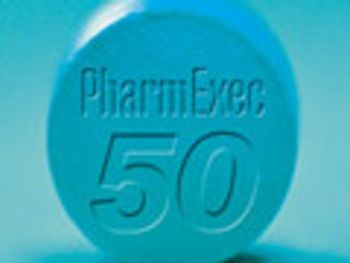
More consolidation didn't boost sales at the top, but a handful of nimble newcomers posted impressive growth on the other end of the curve.


More consolidation didn't boost sales at the top, but a handful of nimble newcomers posted impressive growth on the other end of the curve.

In the long run, pharma wants to sell health, not just drugs.

FDA slaps down Cheerios and forces pharma companies that use Google to make technical changes no consumer will ever notice. Big whoop.

No one who cares about global health can be happy with a system that only "eventually" delivers drugs and vaccines for the planet's neediest people

It's just the way life works: You're always crossing the bridge before you get to it-or after it's gone

Two years ago, an internal Merck survey revealed that its basic research operation was "every flavor of what you don't want." Today the company is in the midst of implementing a new strategy that groups scientists at sites dedicated to particular clinical areas. VP Kathleen Metters explains why - and how.

Maybe what you're feeling isn't impending doom. Maybe it's just growing pains.

Is FDA's MO in foreign inspections too broken to fix?

A vision of pharma's next business model is starting to emerge. But how do we get from here to there?

There's a cure for everything, as long as the patient is a mouse

It's not that I disagree with the Obama and McCain healthcare proposals. It's that there's nothing actually there to disagree with

The great debate on DTC advertising is heating up again. We're going to be hearing a lot about fair balance and risk communication and costs. But what about the patients?

The real question in the Baxter heparin scandal is not who's guilty but whether pharma can get reliable results from a country in chaos

The real question in the Baxter heparin scandal is not who's guilty but whether pharma can get reliable results from a country in chaos

A new report says FDA is desperately behind on science. At last, a critique we can actually do something about. But will we?

In this issue, a longtime contributor to this magazine, former FDA official, and generally thoughtful, knowledgeable person concludes his excellent three-part series on drug safety with a look at how risk is communicated to patients and doctors. It's a fine, detailed, subtle piece of work, and I recommend it to you. (See "Failure to Communicate".)

The Acomplia story isn't ending. It's just beginning. Get ready to see what happens when a much-desired drug is marketed by people accountable to no one.

It's not FDA's job to make doctors and patients take more responsibility for using drugs wisely. But whose job is it? Really, whose?


There are whistleblowers who bring wrongdoing to light. But there are also whistleblowers whose main complaint is "I should have won." FDA seems to suffer from a serious oversupply of the second sort.

There are good reasons why we shouldn't permit lifestyle drugs on the market. But as a society, we've already shown that those reasons don't mean much to us.

A new bill says HHS has to negotiate Medicare drug prices with pharma companies. It won't work-but that's not the biggest thing wrong with it.

A new GAO report sets out to explain why drug development is so expensive and what to do about it. What the report says is important, but what it leaves out is a sense of how the world of pharma actually works.

To one major legal scholar, drug safety regulation isn't just about meeting standards, it's about what you take away from one group of patients in order to benefit the rest.

When Arthur Higgins first announced that he was about to take the reins of the healthcare group at Bayer, in 2004, colleagues were surprised.

The US Department of Justice thinks that "Average Wholesale Price" should mean just what the words say-no more, no less. Why? It's never meant that before.

The problem isn't that there's conflict between safety and efficacy or between getting a useful medicine to market and protecting the public from a dangerous one. The problem is that the conflict isn't well structured. That needs to change.

The world according to New Hampshire: Doctors prescribe expensive drugs because pharma reps sell them. Interfere with the selling, and you'll cut down on the prescribing. It's a plan. But for what?

The road forward for both public health and the industry is going to require more trust and intimacy, not less, between patients, physicians, FDA, and pharma. Patients need to see a fully functioning set of checks and balances-not what they're seeing today.

I needed to eat. I even wanted to eat. Instead, I sat in front of my hospital lunch tray, unable to face up to a carton of red Jell-O. When you think of it, that's a situation most of us face (minus the Jell-O) every day in business.

Published: May 1st 2012 | Updated: November 25th 2020

Published: July 1st 2009 | Updated: November 15th 2020

Published: July 3rd 2007 | Updated: November 15th 2020

Published: June 1st 2009 | Updated: November 15th 2020

Published: April 1st 2008 | Updated: November 15th 2020

Published: January 1st 2008 | Updated: November 15th 2020